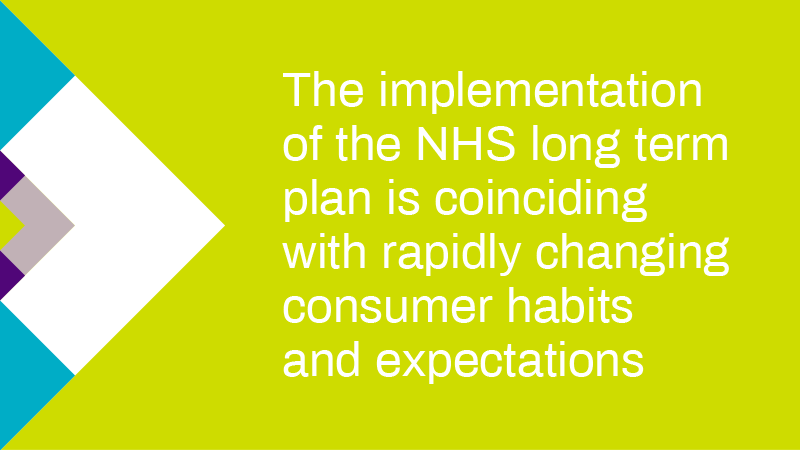Anticipating the Practice of the Future
28 February 2020
Change presents challenges and opportunities in every sector but, arguably, primary eyecare practitioners are experiencing more than their fair share. The implementation of the NHS long term plan is coinciding with rapidly changing consumer habits and expectations that are transforming the high street; optical practices need to position themselves for the future.

It goes without saying that this is not straight forward. Practices have multiple stakeholders, different consumer audiences, and operate through a variety of business models. Treading the line between public service provision and commercial success is a balancing act in which the weights are constantly shifting.
There are many factors to consider. We know there are considerable opportunities to secure the role of optical practices in delivering NHS primary eyecare services, which will bring more patients into the practice environment. This can provide opportunities to broaden the services delivered in practice and build deeper long-term relationships with patients. Practices need to be alert to how they can capitalise on this and maximise returns on increased footfall.
We are also in the middle of digital transformation as the fourth industrial revolution continues at pace. There’s no doubt that the future is digital, but we must also acknowledge the challenges related to rolling out much-needed technology that integrates practices with the NHS to streamline reporting and increase communication efficiency.
Changing expectations
The digital revolution offers new channels to communicate with patients and industry peers, but the speed and sophistication of digital technologies is also changing how people, especially younger generations, engage with healthcare in general.
The public’s expectations of both clinical and commercial services in terms of quality, speed and availability are all altering. Identifying the direction of travel is not always easy, but it is important to keep abreast of trends and possibilities so practices can evolve to respond to them and, in some cases, counter them by offering alternatives.
For example, in the consumer landscape there is a shift in preferences overall from “function” to “experience” – especially when people visit the high street. While function remains important, what people want from services is a great experience that is fully patient- and/or customer-centric and builds trusted relationships and loyalty. People are prepared to go out of their way for a good experience, but anything that has become commoditised they will look to direct channels for fulfilment – such as automated services and online purchasing. Avoiding the commoditisation of eye health is important on several levels – not least clinical. Remote automated services can’t offer the comprehensive eyecare delivered in an optical practice.
This is especially important in bridging the gap to younger generations who may otherwise be more likely to opt for automated services and online purchasing that offer convenience, but not complete care. Practices across the country are investing in advanced technology that can identify eye health problems years before the person experiences symptoms. This underlines that eye health is an important, long-term element of general health and wellbeing that patients should invest in.
Wellbeing and self-care
Another emerging trend that practices can engage with is wellbeing and self-care. Improving self-care and awareness of healthy living is critical to alleviating the pressure on NHS services. As such government campaigns are supporting self-care initiatives. However, there is also growing momentum among younger people, who are investing more in their physical and emotional wellbeing. This is an opportunity to make eye health part of that conversation.
Practices need to embed the notion of good quality one-to-one eye health monitoring with those younger people to build life-long eye care relationships that cement the value of optical practice.
The practice of the future will need to respond to all these challenges, while engaging with multichannel communications and service personalisation, to deliver the exceptional experience the public expects.
Richard Whittington, LOCSU COO, will be discussing this topic as part of a presentation at Optrafair 20/20 in April.

